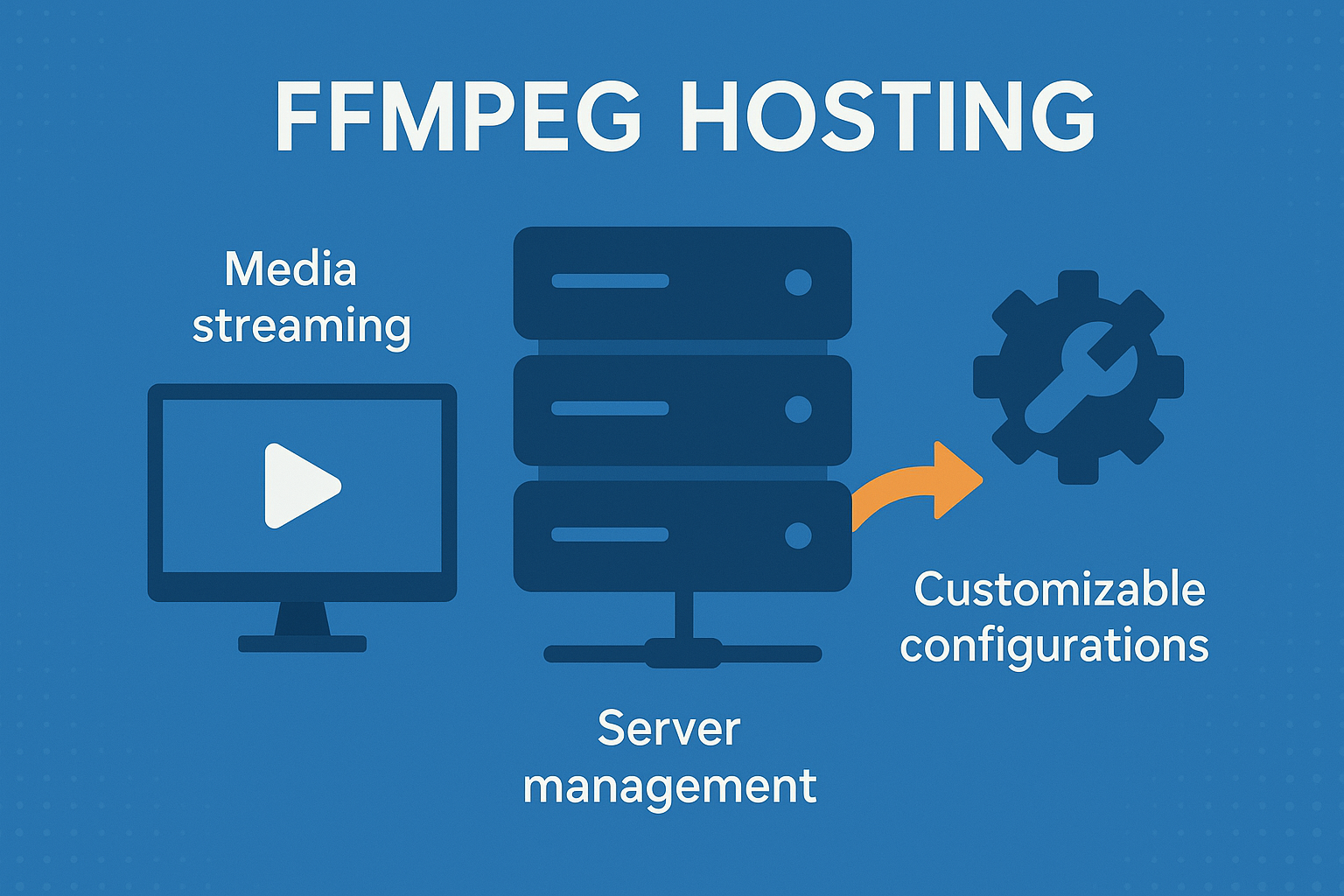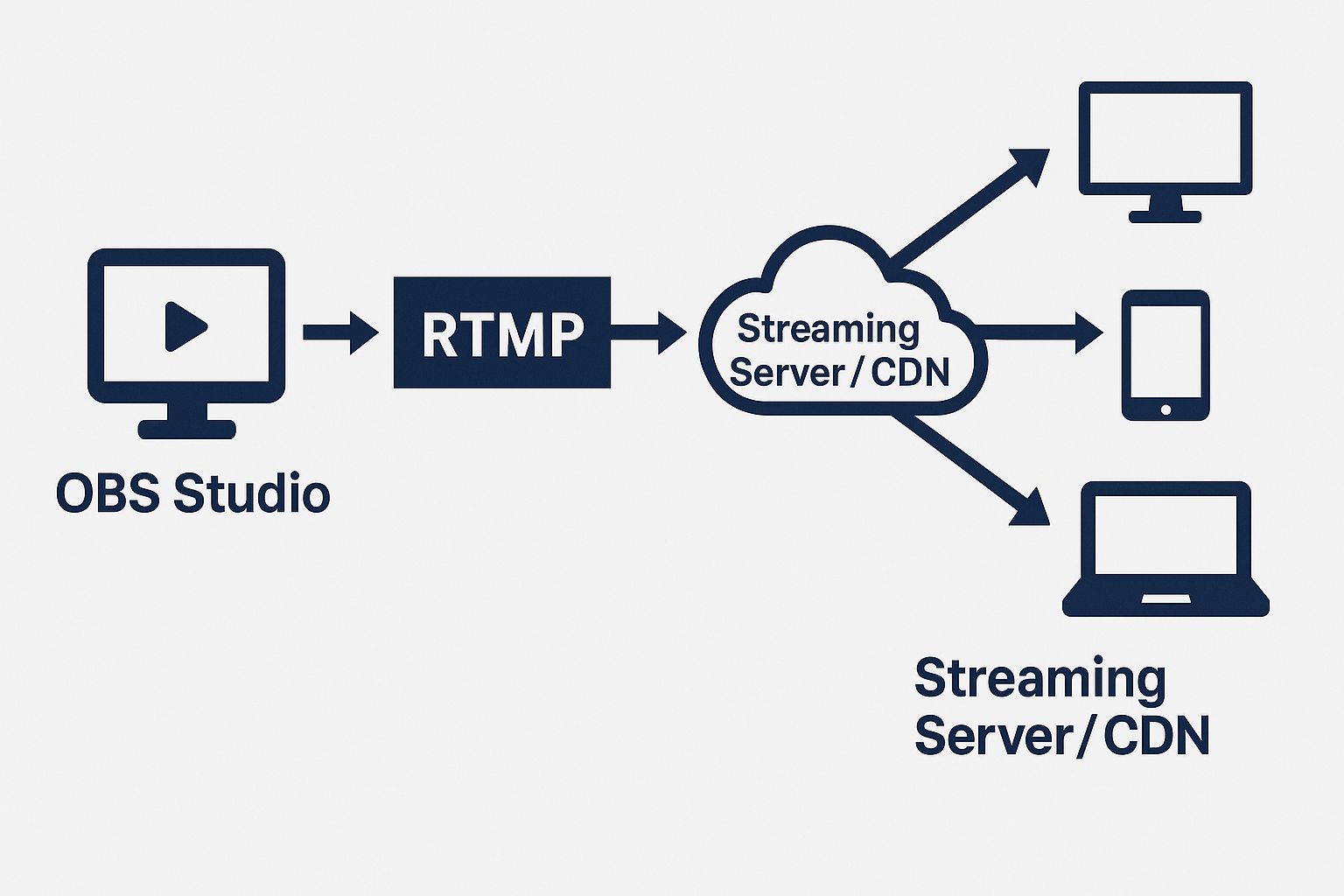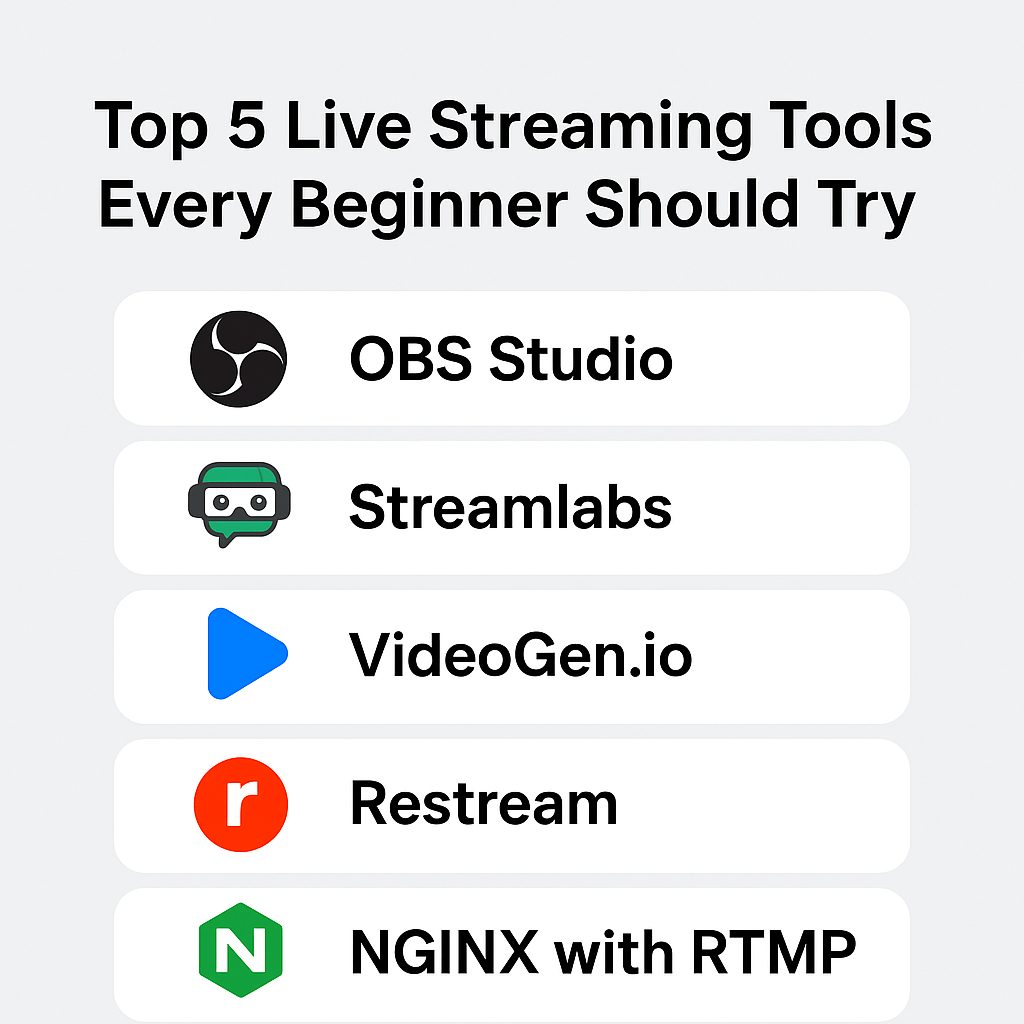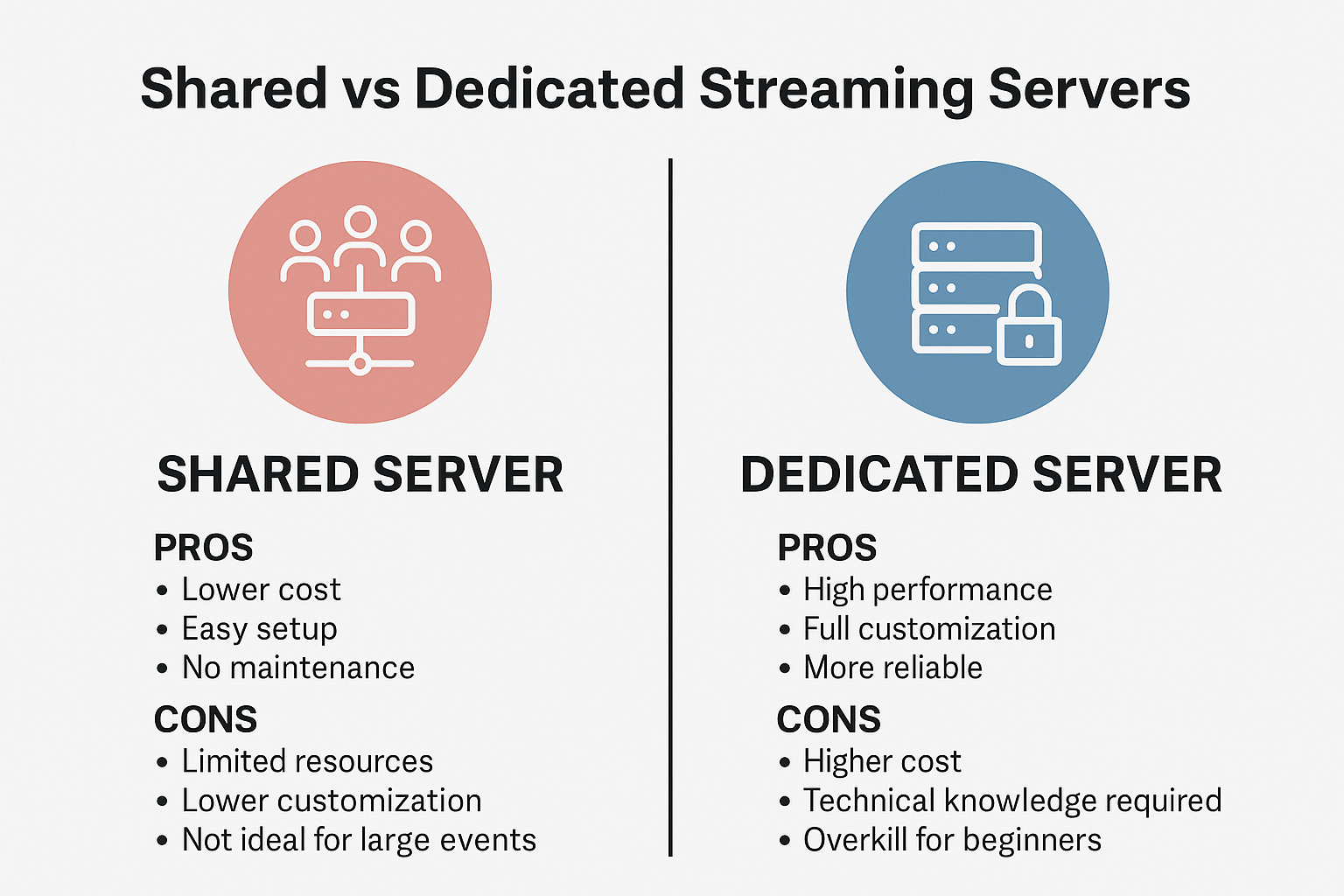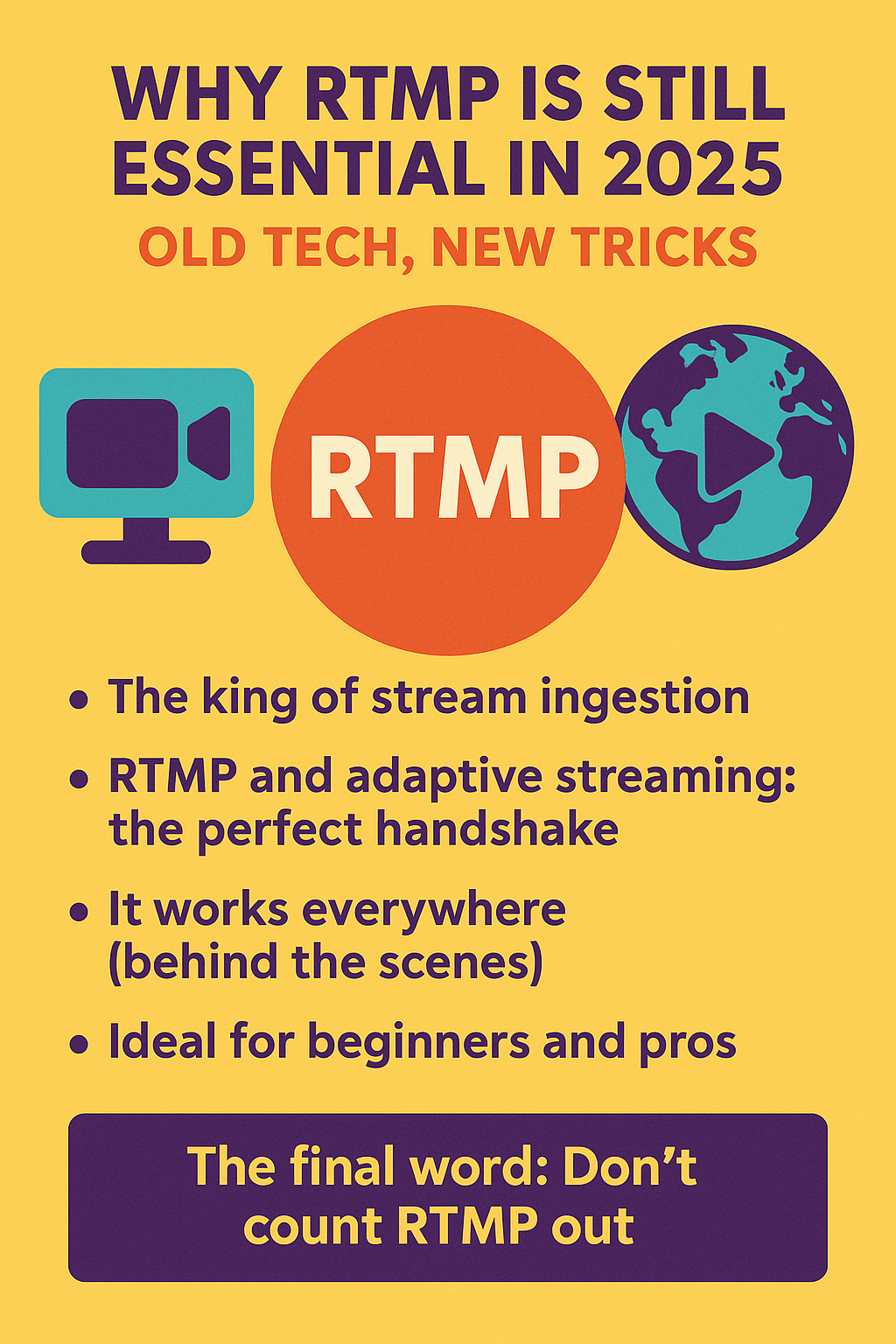The Benefits of Using an RTMP Server for Live Streaming
The Benefits of Using an RTMP Server for Live Streaming
In today’s digital age, live streaming has become increasingly popular. Whether it’s for broadcasting events, gaming, or sharing content with a global audience, live streaming offers a unique and interactive way to engage with viewers in real-time. However, to ensure a smooth and seamless live streaming experience, it is essential to have a reliable and efficient server. One such server that has gained significant popularity among live streamers is the RTMP server.
RTMP, which stands for Real-Time Messaging Protocol, is a protocol developed by Adobe Systems for streaming audio, video, and data over the internet. It is widely used for live streaming and is supported by most major streaming platforms, including YouTube, Facebook Live, and Twitch. The use of an RTMP server offers several benefits for live streamers, making it an ideal choice for those looking to enhance their streaming experience.
One of the primary advantages of using an RTMP server is its low latency. Latency refers to the delay between the time a video is captured and the time it is displayed to the viewer. With traditional streaming methods, such as HTTP, latency can be quite high, resulting in a noticeable delay between the live event and the viewer’s experience. However, RTMP servers are specifically designed to minimize latency, ensuring that viewers receive the content in real-time. This low latency is crucial for live events, as it allows for immediate interaction and engagement with the audience.
Another benefit of using an RTMP server is its ability to handle high-quality video and audio streams. Live streaming often involves transmitting large amounts of data, including high-definition video and high-fidelity audio. This can put a strain on the server’s resources, leading to buffering issues and degraded stream quality. However, RTMP servers are optimized to handle high-bandwidth streams, ensuring that the content is delivered smoothly and without any interruptions. This is particularly important for professional live streamers who rely on high-quality production values to attract and retain viewers.
Furthermore, RTMP servers offer robust security features, protecting both the streamer and the viewers. Live streaming can be vulnerable to various security threats, such as unauthorized access, content piracy, and data breaches. However, RTMP servers employ encryption and authentication mechanisms to ensure that the stream is secure and accessible only to authorized viewers. This helps to safeguard the content and maintain the streamer’s intellectual property rights.
Additionally, RTMP servers provide advanced features that enhance the live streaming experience. For example, they support adaptive bitrate streaming, which automatically adjusts the quality of the stream based on the viewer’s internet connection. This ensures that viewers with slower internet speeds can still enjoy the stream without buffering or lag. RTMP servers also offer DVR functionality, allowing viewers to pause, rewind, and fast-forward the live stream, providing them with greater control over their viewing experience.
In conclusion, using an RTMP server for live streaming offers numerous benefits for streamers and viewers alike. From low latency and high-quality streams to robust security features and advanced functionalities, RTMP servers provide a reliable and efficient platform for delivering live content. Whether you are a professional streamer or an individual looking to share your experiences with the world, an RTMP server can greatly enhance your live streaming experience. So, why wait? Start exploring the world of live streaming with an RTMP server today!
How to Set Up and Configure an RTMP Server for Video Broadcasting

RTMP Server: How to Set Up and Configure an RTMP Server for Video Broadcasting
In today’s digital age, video broadcasting has become an integral part of our lives. Whether it’s live streaming a gaming session, hosting a webinar, or broadcasting a live event, having a reliable and efficient server is crucial. One such server that has gained popularity among content creators is the RTMP server.
RTMP, or Real-Time Messaging Protocol, is a protocol developed by Adobe Systems for streaming audio, video, and data over the internet. It is widely used for live streaming and video-on-demand applications. Setting up and configuring an RTMP server may seem daunting at first, but with the right guidance, it can be a straightforward process.
The first step in setting up an RTMP server is to choose the right software. There are several options available, both open-source and commercial. Some popular choices include Nginx with the RTMP module, Wowza Streaming Engine, and Adobe Media Server. Each software has its own set of features and capabilities, so it’s important to choose one that best suits your needs.
Once you have selected the software, the next step is to install and configure it on your server. This typically involves downloading the software package, extracting it, and running the installation script. The installation process may vary depending on the software you choose, so it’s important to follow the instructions provided by the software developer.
After the installation is complete, it’s time to configure the RTMP server. This involves setting up various parameters such as the server port, streaming settings, and security options. Most RTMP servers provide a configuration file where these settings can be modified. It’s important to carefully review the documentation provided by the software developer to understand the available configuration options and their implications.
One crucial aspect of configuring an RTMP server is securing it against unauthorized access. This can be achieved by enabling authentication and encryption mechanisms. Many RTMP servers support authentication methods such as username/password or token-based authentication. Additionally, enabling SSL/TLS encryption ensures that the data transmitted between the server and clients is secure.
Once the server is configured and secured, it’s time to start broadcasting your videos. To do this, you will need an RTMP encoder, which is responsible for capturing and encoding the video and audio streams. There are several software and hardware encoders available, each with its own set of features and capabilities. Some popular choices include OBS Studio, Wirecast, and XSplit.
To start broadcasting, you will need to configure your encoder to connect to the RTMP server. This typically involves entering the server’s URL, stream key, and other relevant settings. Once the connection is established, you can start streaming your videos to the server. The server will then distribute the video stream to your viewers, who can watch it using an RTMP player or a compatible web browser.
In conclusion, setting up and configuring an RTMP server for video broadcasting is a crucial step for content creators looking to reach a wider audience. By choosing the right software, installing and configuring it correctly, and securing the server against unauthorized access, you can ensure a smooth and reliable streaming experience. With the right tools and knowledge, you can take your video broadcasting to the next level and captivate your audience with high-quality live streams.
Top RTMP Server Providers for Reliable and High-Quality Live Streaming
RTMP Server: Top RTMP Server Providers for Reliable and High-Quality Live Streaming
In today’s digital age, live streaming has become an integral part of our lives. Whether it’s for broadcasting events, gaming, or sharing content with a global audience, having a reliable and high-quality RTMP server is crucial. RTMP, or Real-Time Messaging Protocol, is a popular streaming protocol that allows for seamless transmission of audio, video, and data over the internet. To ensure a smooth streaming experience, it is essential to choose the right RTMP server provider. In this article, we will explore some of the top RTMP server providers known for their reliability and high-quality streaming capabilities.
One of the leading RTMP server providers is Wowza Streaming Engine. Wowza has established itself as a trusted name in the streaming industry, offering a robust and scalable solution for live streaming. With its advanced features and extensive customization options, Wowza Streaming Engine caters to the needs of both small-scale and enterprise-level streaming applications. Its support for multiple streaming protocols, including RTMP, ensures compatibility with a wide range of devices and platforms.
Another top RTMP server provider is Adobe Media Server. Adobe Media Server is known for its exceptional video quality and low latency streaming capabilities. It offers a comprehensive set of features, including adaptive bitrate streaming, DVR functionality, and support for multiple streaming formats. With its powerful administration tools and extensive security features, Adobe Media Server provides a reliable and secure streaming solution for businesses and content creators.
Nginx is also a popular choice for RTMP server hosting. Nginx is an open-source web server that has gained popularity for its high-performance capabilities. With its lightweight architecture and efficient resource utilization, Nginx can handle a large number of concurrent connections, making it ideal for high-traffic streaming applications. Nginx also offers a range of additional modules and plugins that enhance its streaming capabilities, making it a versatile choice for RTMP server hosting.
For those looking for a cloud-based RTMP server solution, Red5 Pro is worth considering. Red5 Pro offers a scalable and reliable streaming platform that leverages the power of cloud infrastructure. With its support for real-time streaming and ultra-low latency, Red5 Pro is an excellent choice for applications that require instant interaction with the audience. Its robust API and SDKs enable developers to build custom streaming applications with ease, making it a preferred choice for businesses and developers alike.
Lastly, we have Ant Media Server, a cost-effective and feature-rich RTMP server provider. Ant Media Server offers a range of streaming solutions, including live streaming, video conferencing, and video-on-demand. With its support for adaptive bitrate streaming and low-latency streaming, Ant Media Server ensures a smooth and uninterrupted streaming experience. Its user-friendly interface and extensive documentation make it easy to set up and manage, even for those with limited technical expertise.
In conclusion, choosing the right RTMP server provider is crucial for ensuring a reliable and high-quality live streaming experience. Wowza Streaming Engine, Adobe Media Server, Nginx, Red5 Pro, and Ant Media Server are among the top RTMP server providers known for their reliability and advanced streaming capabilities. Whether you’re a content creator, business, or developer, these providers offer a range of features and customization options to meet your specific streaming needs. By selecting the right RTMP server provider, you can ensure seamless transmission of audio, video, and data, and deliver an exceptional streaming experience to your audience.



